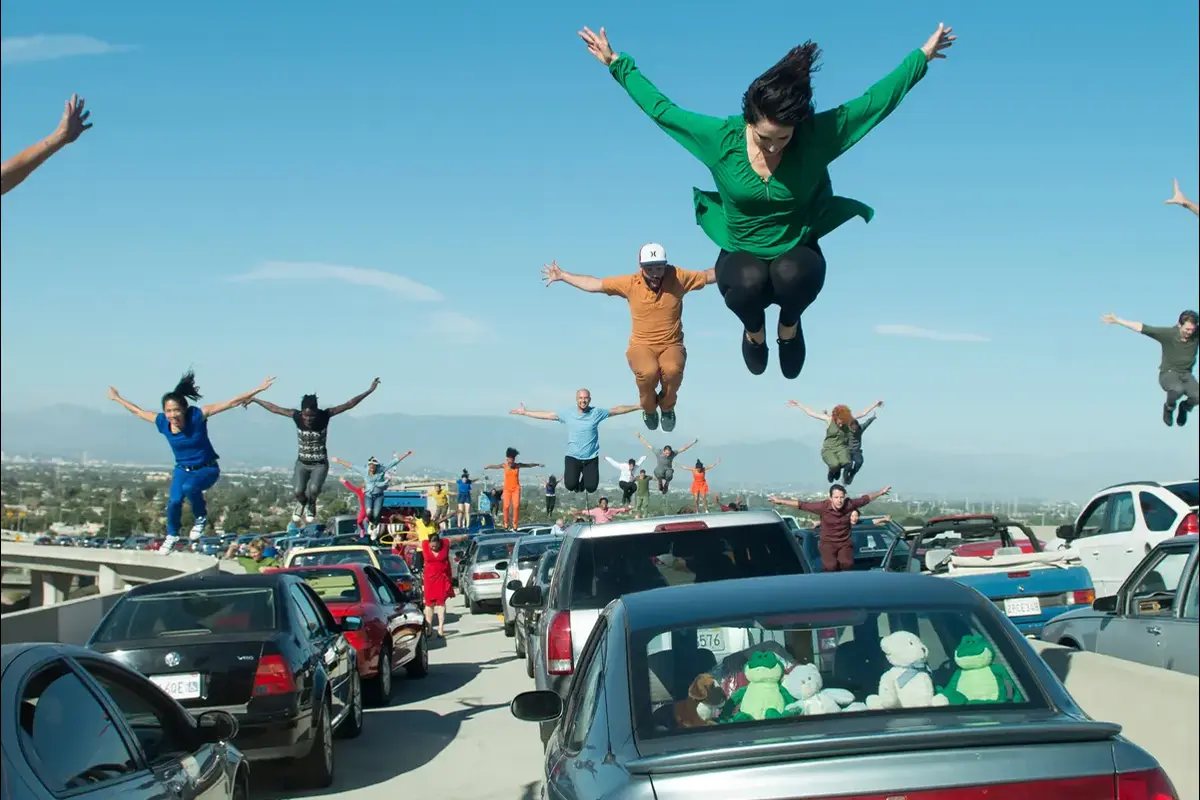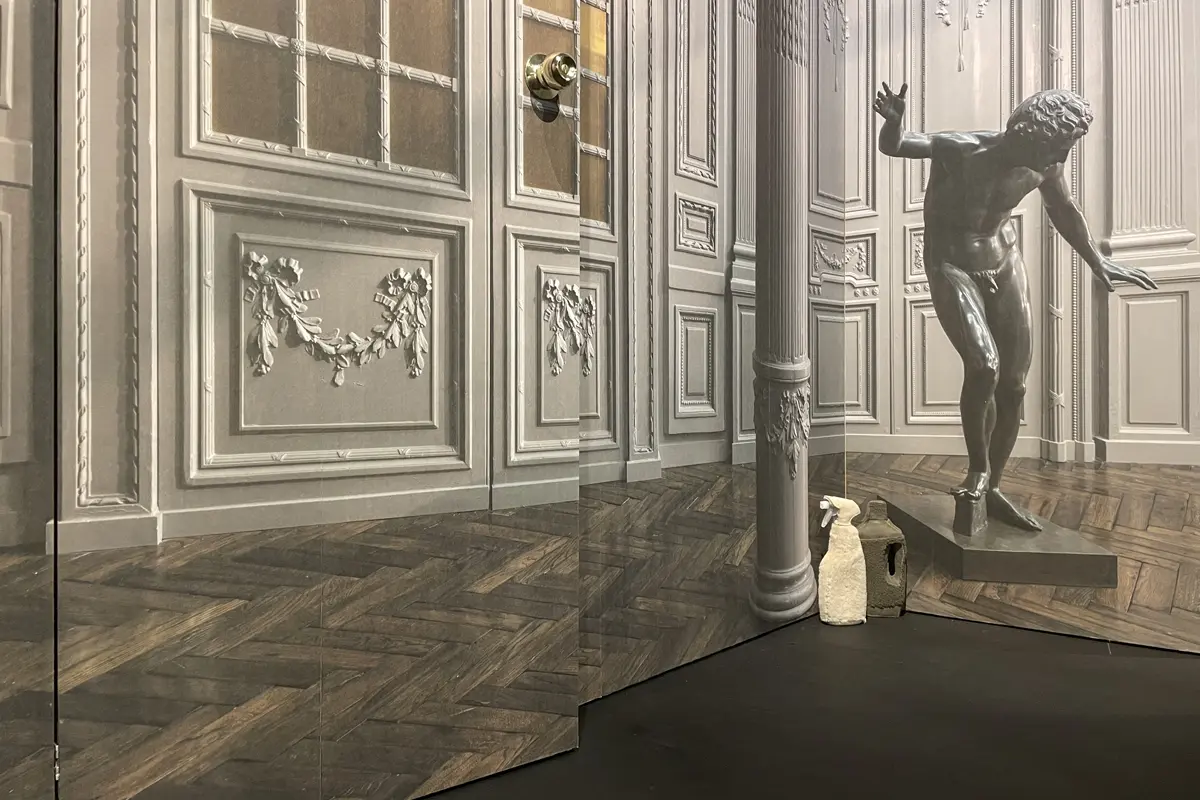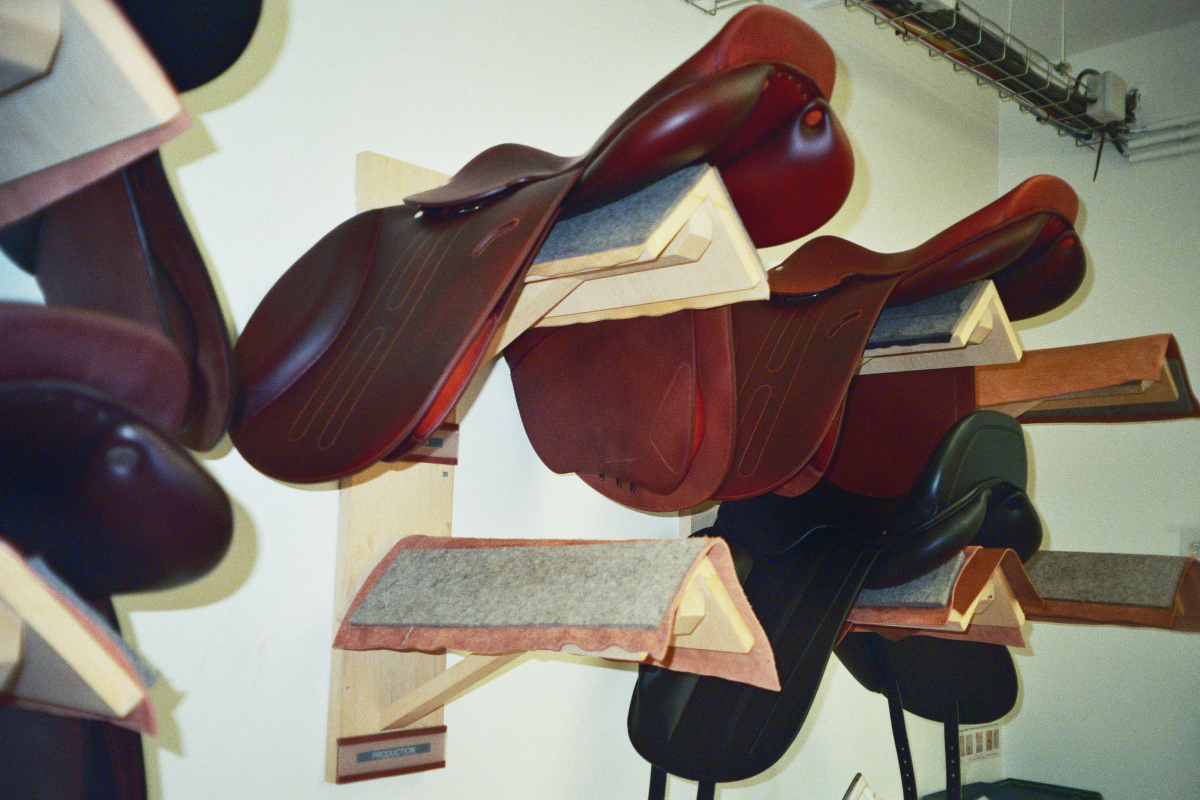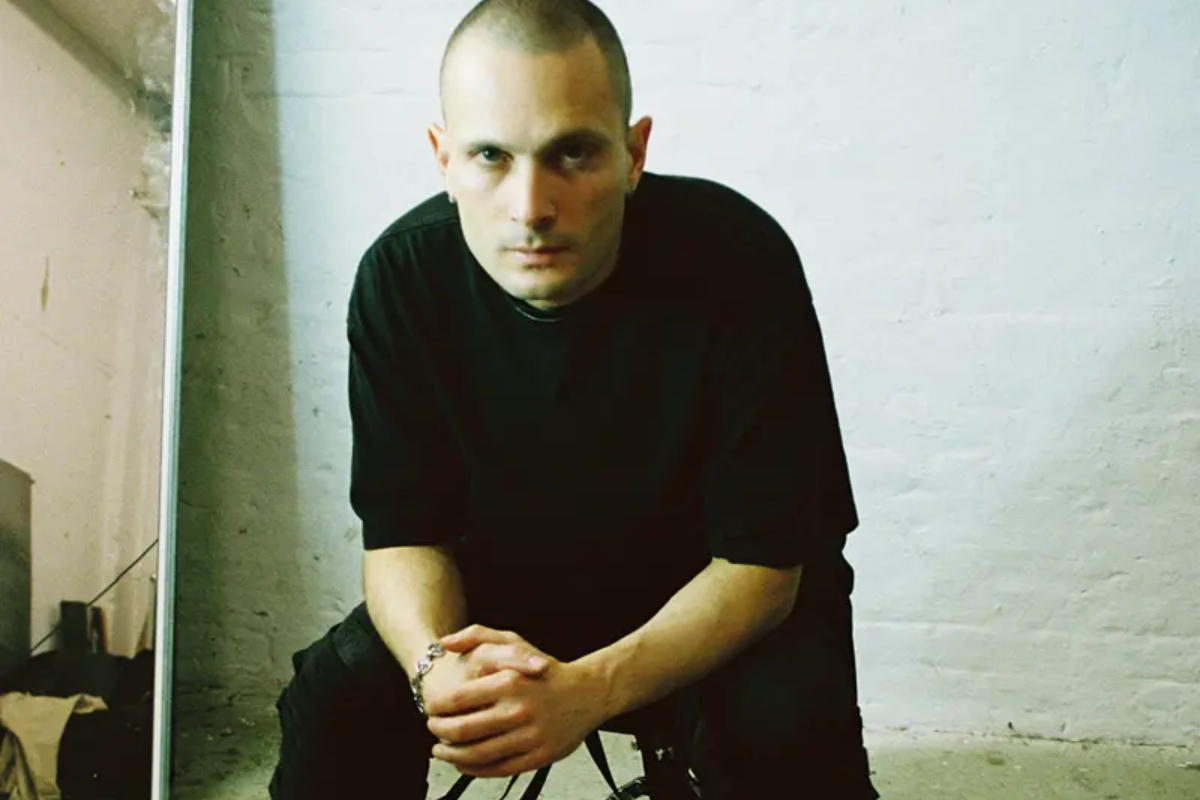Oscar winners, director Damien Chazelle and composer Justin Hurwitz going into details about a long-term collaboration and friendship that have given life to La La Land, Babylon and more
Damien Chazelle and Justin Hurwitz were on stage together in Venice on September 1st. The following conversation was presented as a Masterclass and it was part of a cultural program the Cartier supported as Main Sponsor of the Venice Biennale Film Festival. The talents went through topics of their personal and professional relationship: chronicles and memories of a trusted and respectful collaboration that gave life to movies like Whiplash, First Man, La La Land and Babylon.
Friendship from the First Encounter: Damien Chazelle and Justin Hurwitz – piano lessons, the freshman year of college, roommates
Justin Hurwitz
I had been taking piano lessons since I was about six. Playing the notes right over and over, trying to get the notes right – it wasn’t my thing to do. At ten, my parents got me a synthesizer and this little box called sequencer, which in the mid Nineties was a box that took a floppy disk and it let you layer tracks from the synthesizer. I was layering things from the synth and the hours would disappear and my bedtime would come and go and I would still be up in the middle of the night doing it.
Damien Chazelle
I was immersed in movies or whatever I thought movies were at that point. Then drums sort of took me down into a kind of rabbit hole for a while. So I played music for a while. That’s how I met Justin, through music. but movies were always my first love and I know I would make my way back to them.
Justin Hurwitz
It was the first week of freshman year of college. I was looking to start a band, and I was just asking people, are you a musician or do you know a musician? And I got this hint that there’s this jazz drummer who had won all these competitions in high school named Damien.
Damien Chazelle
The second year of college, we became roommates. We were sharing a room together. I was off in one corner, and he was there. He was always composing.
Justin Hurwitz
You were writing screenplays; I was writing music. It was about respect. It began organically like that.
Composition, Jazz and musicals: Damien Chazelle and Justin Hurwitz in Venice, talking about their collaboration started
Damien Chazelle
Justin was – I guess you were composing more in the classical style. Which I didn’t know anything about. I’d be playing pieces of jazz. It became a little bit of an exchange program.
For years, I thought musicals were not able to express deep emotions, as realistic as movies. I had seen many musicals, and so it’s not like I hadn’t encountered any of the other great classics of the form, but for whatever reason, the genre itself had just always deeply annoyed me. I would be following the story, getting into the world, and then these people would start singing for no reason. It pissed me off.
It was sort of what in French you’d call a kind of coup de foudre with when I saw The Umbrella of Cherbourg for the first time. I remember that, as soon as it started, I had to realize, to my horror, that the entire thing was going to be sung. Bit by bit, almost like a weird chemical reaction, something happened. By the end of the movie, I was a complete mess.
I went back and started re-watching musicals. I found my whole outlook had changed. Instead of being annoyed by the moments where you’re breaking a song, I’d be energized by it. I appreciated the defiance of it. It felt like this was a form of avant-garde cinema, of rules-breaking, defiant cinema, cinema that only cinema can do, but within this sort of rubric of populism, thanks for a mass audience, and if you look at some of the great Hollywood musicals, An American in Paris, things like that, you see that experimental avant-garde streak, but within the most accessible genre, and at the time the most popular genre there was. I became a total addict.
The first movies: Damien Chazelle and Justin Hurwitz: from Harvard to Guy and Madeline, a bit of naivete and Whiplash – not at your tempo
For budget reasons I had to record the music for Guy and Madeline on a Park Bench in Bratislava, playing with the Symphony Orchestra. We had one four-hour session in Bratislava to record all of the music, all of the songs. It was the first time I had ever had my orchestration played by musicians. I had been writing it on paper for my classes.
At Harvard, they used to make us write it not just on paper, but in ink. They wouldn’t let us use pencils. There’s some philosophy of if you make a mistake, you have to whiten it out and it’s harder for you, so it makes you think more.
The music for Guy and Madeline – I had done it on paper, never heard it played. I remember literally jumping up and down on my toes as they started playing the first piece, and the engineers were laughing at me. I was so excited. But there were also a lot of things that didn’t work or didn’t work how I thought they would, or I just hadn’t thought through the practicality of it. Things like where the musicians are going to breathe. I hadn’t thought about that. I had to write lots of notes for the brass and hadn’t thought about how they’re going to play that. A French horn can go to that note, but in practice you might not want to or you might not want to jump to that note or you might want to just not jump from that note to that other note because of the valves and all this stuff that I just haven’t thought through.
When I listen to it, I’m hearing things I wish I could go back and do a little differently or do a little better. There was a certain naivete when it comes to the technical side of it – and wow, I don’t know if I would think of that choice today, now, at this age, you know, with all the experience that has come.
Stéphane Lerouge, moderator
So Whiplash came out and it’s both a musical movie, and a psychological thriller.
Damien Chazelle
There’s the diegetic material, which is basically him playing the drum, practicing his drum. A lot of it is just live sound. Everything you hear there, there’s no post-dubbing. The drumming is just Miles Teller in that scene – and then there’s Justin’s track.
Friendship, collaboration, back and forth it’s about interpreting: Justin Hurwitz and Damien Chazelle, a Master class in Venice
There was a lot of stuff going on at different tempos. There were the two drum tracks, and then there were some pulses, dum dum dum dum dum. Not at your tempo. The dramatic score is big band instruments. Almost like a twisted version of a big band. It was swirling in his head, like a dark, twisted version of the music he was studying and playing. Lots of interpolations of some of the tunes.
An electronic score seemed weird for a movie about musicians and instruments, so we started talking about how we can record real instruments and then process them and do things to them to make them feel like an electron to give you the feeling of a thriller score. It’s like a modern thriller score, but it would still be organic with instruments.
We’ve had the same process since we were nineteen or twenty. It’s a lot of piano demos. We’re talking about themes and materials. I make something, I email it, and for three years now, I’ve used iPhones to send a voice note. We just go back and forth, back and forth a million times, talking about it.
Damien Chazelle
What Justin does, is not about just interpreting what I’ve done.
I might give some basic indications, whether it’s a script or just basic descriptions or whatever, and then I’ll run off and do something. And then I’m interpreting what he’s done as well.
I usually have a big store of his music before I’m even storyboarding or figuring out his shots. In some sense, I can say the opposite: the movie itself is an interpretation of what Justin has done, which he later reinterprets. It’s a constant back and forth, instead of one of us waiting for the other. It’s respect, it’s human respect – and it must be rough and sincere. A ping pong game from early, early, early stage of the script all the way to the final, yelling at each other on the mix stage when the movie needs to be done.
For First Man, there’s this track, Lunar Rhapsody, that Neil Armstrong played on his way back from the moon (on a Sony TC-50, editor’s note). Ryan Gosling, who plays Neil, got into it. I sent it to Justin, and I don’t know exactly where the conversation went from there.
Ryan Gosling in The First Man is Neil Armstrong going to the Moon: Justin Hurwitz using a theremin and Damien Chazelle imposing it to the studio
Justin Hurwitz
We used that song in the movie about Neil Armstrong, The First Man. I rearranged it and made a sort of theremin-led kind of small orchestral track. It’s pretty, but kind of eerie and weird. A theremin is a synthesizer that, instead of having a keyboard that triggers the notes, has two antennas. One is for pitch and one is for volume. When you get further and closer from one, that’s volume, volume is up and down. You have two in here, one you’re going to the towards, the other one you’re going up and down. Volume and pitch. Waving your hands. You never touch it – or if you do touch it, it makes the sound go away. It’s sort of feeling your magnetic field or whatever it is. You’re waving your hands at it, never touching it. What I loved about it is how human it felt.
I remember a breakthrough when we started playing with that melody which had been composed on piano once we put the melody on the theremin. I remember were the theremin and then how we were going to process the strings, that was the other breakthrough, putting all the violins, violas, cellos, basses through a Leslie rotor cabinet, which is basically a speaker that spins around. If you hear it, it’s all shaky. It went back and forth – always back and forth with Damien. First at the piano and then trying the instrumentation and production choices.
Stéphane Lerouge, moderator
It was a huge struggle to impose the theremin and timbre to the studio, to the production company.
Justin Hurwitz
They tried to fire me for the movie. They brought in another composer. We had to fend that off.
Damien Chazelle
It was dicey. Weirdly, the hardest navigating that Justin and I ever had to do in terms of within the studio system. Much harder than anything we had to do in Babylon, for instance, in terms of trying to negotiate the studio with the theremin. They were going to kill it. Justin became skilled at playing the theremin.
Justin Hurwitz
I can do take after take after take, and edit it together and fix the tuning and all of that.
If you just play the theremin alone, it’s bright, an annoying sounding instrument. If you put these filters, you take all the high frequency out of it, it makes a warm quality.
Orchestration is my favorite part of the process, finding those colors, using the orchestra, whether I was thinking melancholy or playful.
Between friendship and collaboration – the range of reactions, the bad guy that has to complain
Stéphane Lerouge
What’s the range of reactions you get from Damien at the recording session?
Justin Hurwitz
It’s a big range. It depends on the kind of music we’re doing. If it’s orchestral, it’s pretty set, but if it’s jazz… The jazz combo stuff, in La La Land or Babylon: we had a whole week at Capitol with a thirteen-person band and a lot of other overdubs like percussion. Those sessions were more flexible. We were trying to find the drum grooves or whatever. It’s an exploration. Try one player, try a different player, try to find the right thing. We had some frustrating moments on the Babylon score, just trying to get the right tone, the right solos. We were so focused on making it Twenties, but not too Twenties.
Sometimes it’s a note from you, Damien, and I have to deal with it – and so, okay, how do I take that? What do I have to tell the musicians to get it done differently or right?
Damien Chazelle
I get to be the one who complains.
Justin Hurwitz
And be the bad guy.
Damien Chazelle
And you have to be the bad guy. I get to just kind of wave, go, oh, it’s so great, thanks guys. It can be awkward sometimes.
It’s only fair, because on shooting, Justin’s annoying when I’m shooting. If there’s any music stuff on set, Justin’s on set and he’ll be in my ear first thing if there’s something not quite right. Then I have to be the bad guy.
We stick to our guns – the Masterclass in Venice presented by Cartier: a conversation between Damien Chazelle and Justin Hurwitz is part of La Mostra project
Damien Chazelle
When you start, even just forgetting artistic integrity, even from a purely pragmatic standpoint, you have to stay honest to whatever project you’re doing. That’s going to be something that others are trying to talk you out of. I’ve never met anyone more stubborn than Justin and able to stick to a vision despite daunting odds, where most people would buckle.
There were lots of steps along the road of all these movies that we’ve made. From a musical standpoint where a lot of voices weren’t Justin’s head, trying to tell him to go one way, and he didn’t.
Justin Hurwitz
We stick to our guns. But it’s also important to listen to everybody, listen to every note, listen to every voice, and then try to filter all of it and take what’s smart and ignore what’s stupid. Even when I don’t take the most of it, there’s always some truth in it.
We were talking about the studio wanting to get rid of theremin, wanting to get rid of me. I listened to everything. I listened to whatever they said, all the comments at the screenings, the studio executives, etc.
It might mean something different than what they’re telling you to do. Okay, I’ll try a slightly different filter setting on the movie and mix a little differently and that puts it in a better place for all of us. You have to have that North Star and know what you’re sticking to, but then try to figure out if there are any bits of truth that you can take to make the work better.
Talking about compromises between us, it always comes at the mix stage. We usually have our biggest fight in the mix. There was a note the trumpet was going to rip up at the end of Planetarium. And I had one note and you wanted a different note and we couldn’t agree, we had a big fight and we had an in room.
Neither one has the force of the other one and is something that the other is happy with. It’s human respect, but it’s also more. I never want to him be unhappy with something, he never wants me to be unhappy with something. We look for that option C if it’s fighting over A or B. Damien came around to give a note, and it was when a real musician played it, which so often happens, like we were talking earlier. It’s one thing in a mock-up, and it’s different when a musician plays it. We couldn’t agree on a virtual instrument mock-up, and then we were ready to record both the notes in one day – but we didn’t record the second one.
From human respect to a rough and honest friendship in La La Land: Damien Chazelle and Justin Hurwitz talking about fighting and understanding
Damien Chazelle
The inspiration of a movie often starts with music, sometimes it’s music from Justin, sometimes it’s a sort of wide array, a playlist or something. They’ll wind up being pieces of music that don’t even inform what Justin does at all, but it helps get me started on the writing process. That’s a soundscape. For La La Land music was before the script for obvious reasons, but it was like a treatment or something like that.
Justin Hurwitz
La La Land is the only one where I was working from a treatment. It was a musical – but usually I get a script, read it, and then we just start breaking down the script. Where there is going to be music, where there is not. Start coming up with themes at the piano, and sounds with virtual instruments before we were recording the thing. Storyboards, that’s always a fun process. Damien, do you still do hands? Do you still draw on them yourself?
Damien Chazelle
Yes.
Justin Hurwitz
Hand-drawn storyboards, and then I bring music to that.




















